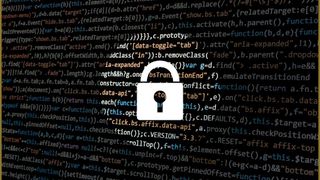DuckDuckGo, Proton, Mozilla throw weight behind bill targeting Big Tech ‘surveillance’
Tech companies fighting for data privacy in the US want to resurrect a forgotten old bill

A group of privacy-focused organizations have signed a letter imploring US Congress leaders to schedule a vote on a bill that would hamper data collection by tech giants and promote user access to online privacy tools.
In its letter to Congress, addressed to the likes of Mitch McConnell and Nancy Pelosi, the alliance argued that the continued suppression of the American Innovation and Choice Online Act (AICOA) allows “dominant firms” to “limit competition and restrict user choice” when accessing privacy-focused technologies and products.
It also accused tech giants of forcing users into accepting their policies of “perpetual surveillance” because of their positions as “gatekeepers”, and of using their “influence in society” to steer users away from rival services more committed to privacy.
Online privacy in the US
Signatories included the likes of DuckDuckGo, Proton, Brave and Mozilla, among others, representing sectors ranging from VPN and search to web browsers, office software, and more.
The letter to Congress fighting for the revival of the AICOA hit back at the idea that the US technology industry is a free market. The 13 signatories, all of which are relatively small in stature, claim the tech giants deliberately wield the depth and breadth of their product portfolios to establish unassailable monopolies.
However, the resources and lobbying power at the disposal of companies like Google and Meta mean the economic interests of corporations have often taken precedence over the online privacy of the people that use their platforms.
In this case, as the bill poses a direct threat to large tech companies' abilities to collect data and squash the push for online privacy in the US, it’s likely that tech giants will succeed in persuading politicians to suppress the AICOA, at least in part because the thirteen-strong collective does not have the same resources at its disposal.
Are you a pro? Subscribe to our newsletter
Sign up to the TechRadar Pro newsletter to get all the top news, opinion, features and guidance your business needs to succeed!
As a result, the AICOA is unlikely to be tabled for discussion, and even more unlikely to be passed into law before the November midterms, by a House of Representatives with a slim Democratic majority of nine and an evenly split Senate. As for the fate of the bill after the midterms, only time will tell.
TechRadar Pro has asked Meta and Google for a response to the letter to Congress.
- Here's a list of the best VPNs for PCs right now

Luke Hughes holds the role of Staff Writer at TechRadar Pro, producing news, features and deals content across topics ranging from computing to cloud services, cybersecurity, data privacy and business software.
Most Popular

